I always have a problem finding a suitable storage solution for the amount of oat milk I go through.
Fortunately, I've come up with a solution that has worked well for me. But before I tell you what this solution is, can you freeze oat milk?
Yes, it turns out that you can freeze oat milk without any ill effects. You can also defrost oat milk, as long as you take the proper steps.
By the end of this article, you'll know everything about freezing oat milk, what happens when you freeze it, how to go through the freezing and defrosting process, and so much more.
Can You Freeze Oat Milk?
The good news about oat milk is that it freezes just as well as any other plant-based milk on the market today, provided you go through the necessary steps.
You see, because you are making this "milk" from something as fibrous as whole-grain oats, the odds are pretty good there's going to be a bit of gritty, grainy residue left in your milk – no matter how well you strain the finished product.
If you don't take the time to freeze your oat milk correctly, all of that grainy material will get mixed into mush, and the defrosted product will suffer because of it.
On top of that, if you haven't added any emulsifying agents or stabilizers to your homemade oat milk (or your store-bought milk is free of those compounds as well), the chances are pretty good you'll end up with a "half and half" product when you go to defrost.
That's not a big deal, either. We'll show you how to minimize that issue as much as possible in a moment.
But it's important to know what you're getting into all the same.
The best news is that you can freeze oat milk just the same way as you'd freeze any other traditional dairy product.
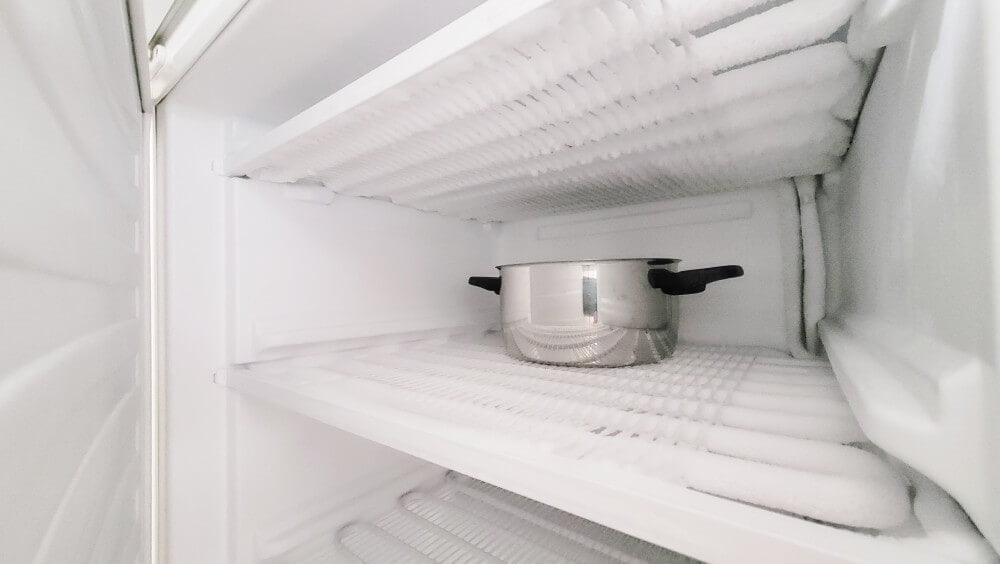
What Happens if You Freeze Milk?
As we highlighted a moment ago, when your oat milk goes through the freezing process, there's a tendency for the different compounds in the finished product to separate.
There aren't many things you can do to stop the separation from happening (though we give you some tricks to minimize the separation as much as possible in just a minute).
It's something you have to deal with when you defrost oat milk – and something that you can tidy up without a lot of extra effort.
Just don't be surprised if you put perfectly mixed oat milk into your freezer and then check back in a couple of days to find something that looks a little gritty or like it's separated into two completely different liquids before freezing.
That's all part of the process!
Related: Can You Freeze Almond Milk?
How to Freeze Oat Milk
When freezing oat milk, freeze it in as small a quantity as possible to minimize the amount of separation that we discussed earlier.
No, this doesn't mean that you're only going to have a teaspoon or two of oat milk on hand when it's time to reach into your freezer.
You can still freeze big batches of oat milk whenever you want.
Many people like to freeze their oat milk in ice cube trays or other silicon dishes.
You'll be able to freeze your favorite oat milk in equal quantities, and because of the small form factor, it will freeze faster with less separation.
Portioning out all of your oat milk in advance before you stuff it in the freezer also lets you pull only the amount of oat milk you need from the freezer instead of having to defrost huge batches that you might not have used before it spoiled.
That's something to consider, anyway!
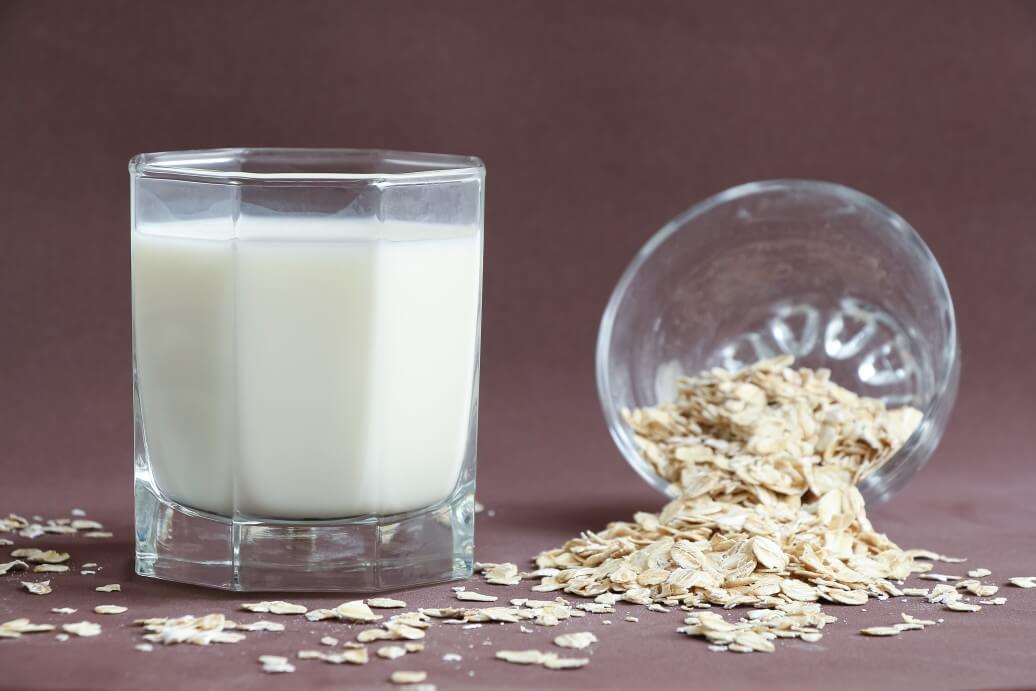
How to Defrost Oat Milk
Now that we have tackled all of that, it's time to get down to how you defrost oat milk to use it in as many different applications as you would the "real stuff" that never got frozen.
For starters, we want to let you know that it's best if you let oat milk defrost all on its own in the refrigerator.
Your first thought might be to leave frozen oat milk on the countertop or run it under warm water to defrost quickly. However, that will result in a funky, unmixed – and next to impossible to emulsify – milk that you're not going to enjoy.
It's much better to let your oat milk come into its own all on its own by sticking it into the fridge.
Sure, it will take at least a couple of hours to defrost (especially if you froze your oat milk in ice cube trays) – and maybe even longer than that – but that's okay.
You'll know that you can reconstitute the oat milk into a well-mixed and emulsified product.
But you'll also know that "bad bacteria" didn't find their way into your oat milk when you left it on the countertop and that it didn't spoil or pick up any funky flavors from running it under hot water.
Once again, though, do not be surprised if your oat milk has a graininess to it after it has thawed that it didn't have initially.
You can get rid of that graininess if you'd like by running it through a cheesecloth to pull out the "pulp."
Or you can chalk it up as a texture additive and rock 'n' roll from there.
Of course, you can also always use thawed-out oat milk in applications where the graininess won't be an issue. Add it to breakfast cereal, granola, or oatmeal, and you'll never even know there was any grittiness in the first place.
There's nothing wrong with that grain from a health or flavor standpoint!
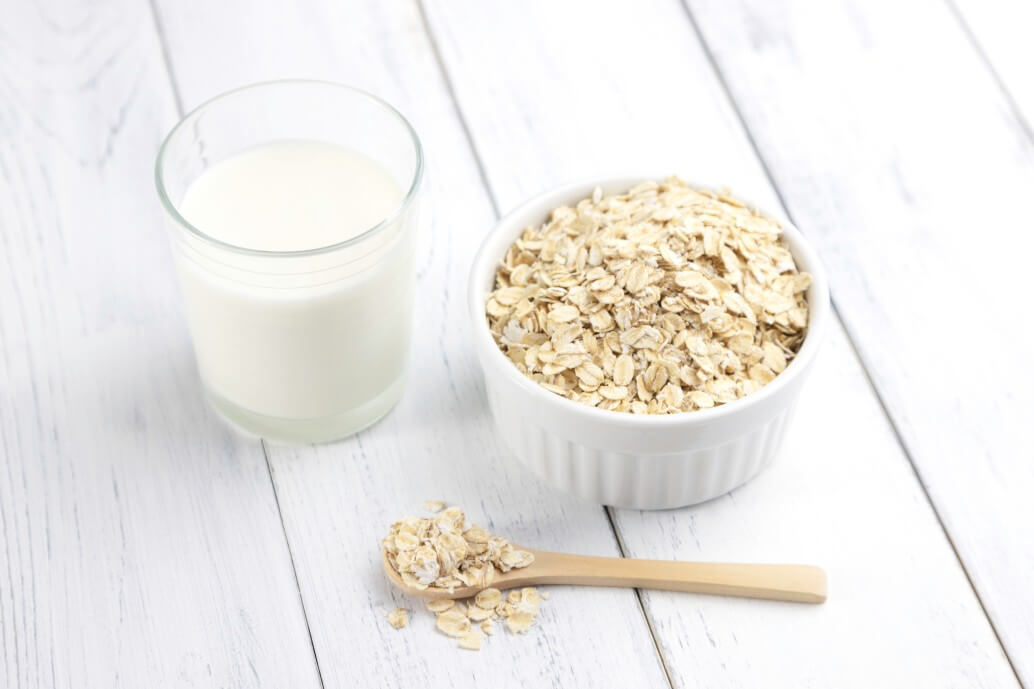
Can You Re-freeze Oat Milk?
As far as re-freezing oat milk is concerned, this is probably something you want to avoid.
It's not that you can't physically freeze oat milk after it's been frozen and then thawed once before. The liquids will freeze just the same way as they would have the first time.
The issue is that re-freezing oat milk changes the texture and the flavor for the worse.
On top of that, if you are freezing and then re-freezing oat milk, the chances of getting your batches mixed up – and maybe thawing and drinking expired oat milk – skyrocket significantly.
The first time that happens will be the last time you go through the re-freezing process; we promise you that!
Skip the re-freeze. It's just not worth it.
How Long Does Oat Milk Take to Freeze?
At 0°F (where many freezers are set), you'll be able to freeze a gallon of oat milk solid in about 24 hours.
However, if you divide your oat milk into smaller portions using an ice cube tray, it will freeze significantly faster.
We are talking about cutting the freeze time in half (maybe taking 12 hours or so to get solid), though sometimes you'll be able to get there even quicker.
As a general rule of thumb, expect it to take about 12 hours for your oat milk to freeze when you divvy it up into individual portions.
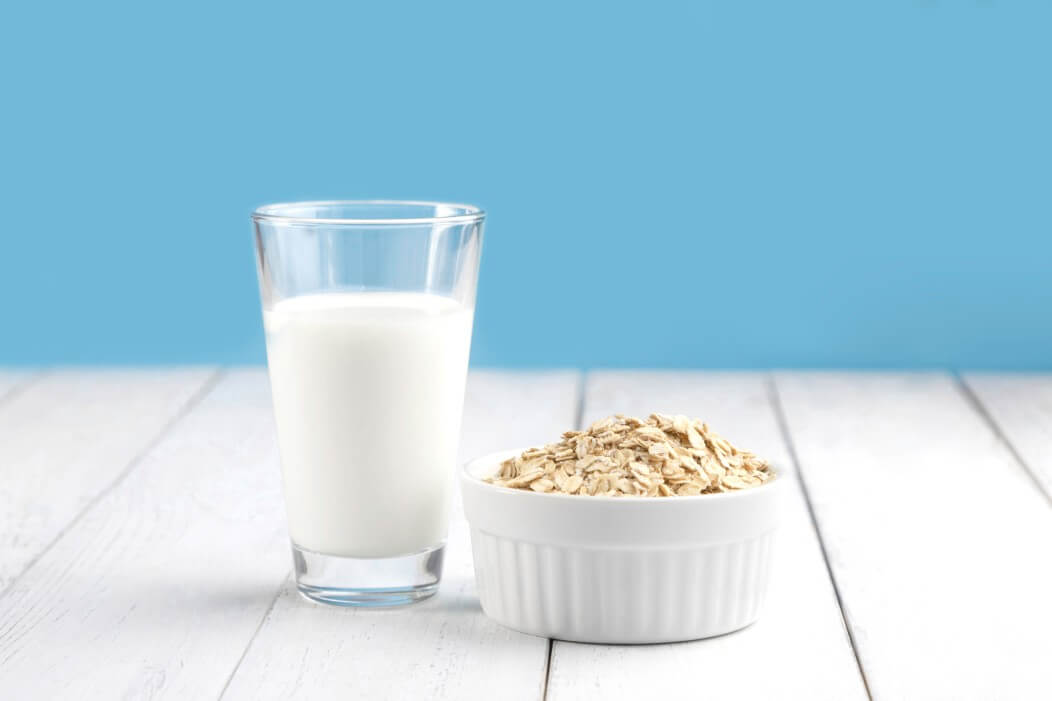
Can You Freeze Oat Milk For Ice Cream?
Making oat milk ice cream is a little more challenging than making straight dairy ice cream – but not impossible.
You want to be sure that you are either using a dedicated ice cream maker (you can pick these up pretty cheaply online today) or a "no churn" process.
Secondly, you need to ensure that you are using plenty of fat to add the right kind of texture to your finished product.
If you are steering clear of dairy completely with oat milk ice cream, consider choosing a nut butter that can act as your fat and texture agent.
Third, you want to be smart about the sugar and sweetening agents you use when freezing oat milk for ice cream.
Different kinds of sugars and sweeteners aren't just going to add flavor into the mix. They change the texture and composition of ice cream as well.
There's a difference between using maple syrup as a sweetening agent in your oat milk ice cream and using granulated white sugar, coconut sugar, or "sugar alternatives."
Make sure you know what you are getting into before jumping right in!
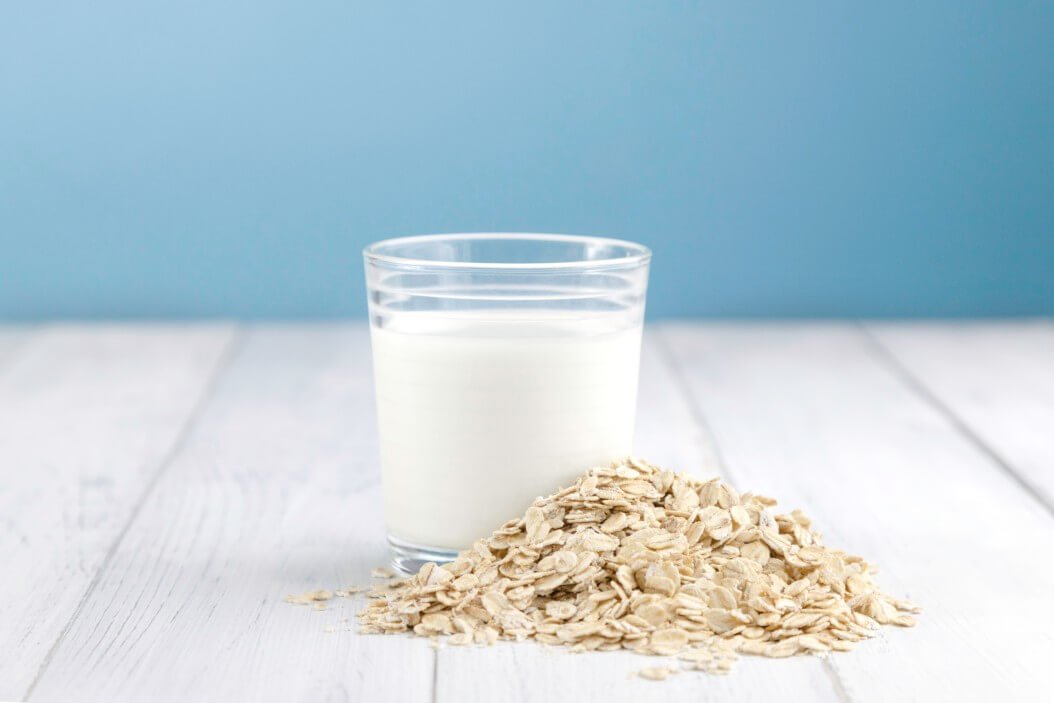
Can You Freeze Opened Oat Milk?
You can freeze opened oat milk if you feel like you aren't going to use it before it expires.
But it's essential that you properly label your frozen oat milk to know how much life it has left when it thaws out.
We're not just talking about transferring the expiration date here, either.
No, you need to figure out how many days left that opened oat milk had before it expired and right that prominently somewhere on the container of frozen oat milk you've created.
Take into account the time it takes to freeze the oat milk and its time to thaw.
If you've only got two days left before that oat milk goes bad, and it will take about a day to freeze and another to thaw, it might not be worth going through all the trouble.
How Long Can You Freeze Oat Milk?
Oat milk (when frozen in tiny individual portions) should last three months or more without any degradation whatsoever.
Any longer than that, though, and you're going to notice some funkiness with the flavors (they become a lot more muted with extended freezing) and textures (it gets grittier and grainier) when you defrost the product.
Shoot for three months, though, and you'll be good to go.
Related: How Long Does Oat Milk Last?
FAQ
Can You Freeze Homemade Oat Milk?
Yes, homemade oat milk will freeze up just as well and often even better than commercially available oat milk.
Homemade oat milk is almost always nothing more than whole-grain oats and water. There are not a lot of "extras" to cause trouble with the freezing process.
Can You Freeze Oatly Oat Milk?
Yes, this super popular oat milk will freeze. You don't have to go through any additional steps to freeze it up. Just stick to the small portion recommendation we made earlier.
Can You Freeze Alpro Milk?
Alpro oat milk will freeze the same as any other oat milk on the market today (and the same as homemade oat milk, too).
Does Oat Milk Freeze Well?
Oat milk freezes about as well as any other emulsified product in that it has the potential to separate a little bit during the freezing process if it's not frozen in small portions.
On top of that, you'll get a little bit of grittiness during the defrosting process, no matter what.
Getting those tiny little bits of grit to re-emulsify back into silky smooth oat milk after it freezes is challenging (if not impossible).
